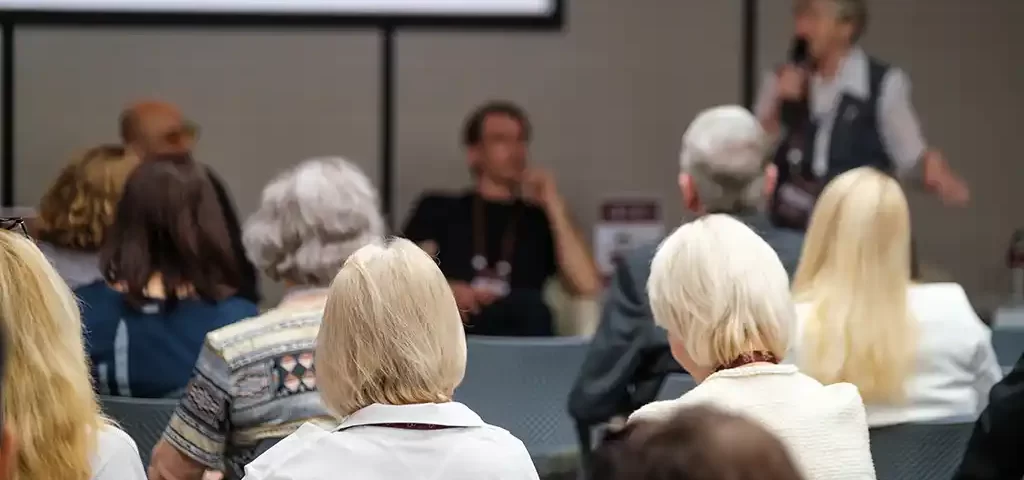
How to Handle Homeowner Complaints Effectively
July 17, 2025
How HOA Management Companies Improve Homeowner Satisfaction
July 20, 2025Good fences make good neighbors – until someone’s fence violates Section 7.2 of the CC&Rs. Then, the neighborhoods turn into war zones.
Homeowner associations walk a tightrope. Slack rules mean declining standards and property values, and heavy-handed enforcement breeds rebellion and lawsuits.
Rules Need Real Reasons
Ever wonder why a particular rule exists? So do homeowners.
Good regulations protect:
- Property values (provably, not theoretically)
- Physical safety
- Common areas and equipment
- Basic neighborhood standards
Bad rules result from personal pet peeves: the board member who hates basketball hoops, the treasurer annoyed by holiday inflatables, or the secretary with strong opinions about mailbox colors.
Check each policy against a simple test: Does this rule protect something concrete, or just enforce someone’s personal taste? It doesn’t belong in your rulebook if you can’t explain why a restriction benefits the entire community.
Ban the Ban Hammer
“No signs whatsoever.” “Absolutely no parking on streets.” “No exterior modifications of any kind.”
These absolutes create implementation nightmares. Perfect enforcement leads to ridiculous outcomes (e.g., banned security system notices, ticketed emergency vehicles). Selective enforcement destroys credibility (e.g., “Why does SHE get to have a sign?”).
Effective policies set parameters instead of prohibitions. Not “no signs” but “signs limited to 18×24 inches, displayed for no more than 30 days.” Not “no modifications” but “modifications requiring approval based on materials and neighborhood compatibility.”
Rules establishing HOW rather than WHETHER strike the right balance. They protect legitimate community interests while respecting homeowner freedom.
Let Folks Weigh In
Nothing triggers rebellion faster than surprise restrictions. The Monday newsletter announcing “Effective immediately, all porch furniture must be beige or brown” guarantees angry Wednesday board meetings.
Smart communities share draft policies before adoption, hold informal sessions for major changes, and develop complex regulations using committees with actual homeowners (not just board buddies).
This approach catches problems early. For example, residents with home-based businesses spot flaws in commercial use restrictions, and military families identify deployment issues in leasing policies. These insights prevent unintended consequences.
More importantly, participation builds ownership. People follow rules they helped develop, even inconvenient ones. The process matters almost as much as the outcome.
Play No Favorites
The fastest way to kill enforcement? Exceptions for friends, influential residents, or board members themselves.
The entire rulebook loses credibility when the board president’s holiday lights stay up until February, while violation letters go out to everyone else. Consistent enforcement requires:
- Standardized inspection procedures
- Identical notification processes for all violations
- The same timelines regardless of who’s involved
- A straightforward appeals process that is available to everyone
- Board members holding themselves to higher standards
Communities struggle most with this principle. Nobody enjoys confronting neighbors, especially powerful or popular ones. But creating an untouchable class destroys the foundation of community governance.
Skip the Legalese
Compare these approaches:
“Dear Homeowner: Pursuant to Section 7.3.2 of the CC&Rs and Rule 12(b) of the Association Regulations, your refuse receptacle placement constitutes a violation of community standards and requires immediate remediation.” versus “Please place your trash can behind your fence except between Thursday evening and Friday noon.”
The second approach always works better. Plain language improves compliance, reduces confusion, and decreases resentment. Leave the legal terminology for actual legal situations.
Update Regularly
Communities change. Young families become empty nesters. Technology transforms how we live. Rules need regular review to stay relevant.
Many communities still prohibit TV antennas, excluding satellite dishes, solar panels, and electric vehicle chargers. Others ban home businesses without distinguishing between 1980s manufacturing concerns and modern remote work.
Schedule annual reviews to identify outdated, problematic, or frequently violated policies. Those trouble spots often need refinement or replacement.
Good association policies make shared living better, not just more controlled. They protect what matters while allowing homeowners maximum freedom within necessary boundaries.
For help developing effective rules, call Neighborhood Management at (972) 359-1548. Their team helps communities create policies that protect values without creating perpetual battles.
For more information about Neighborhood Management’s approach to community association management, call 972-359-1548 or visit NeighborhoodManagement.com.






